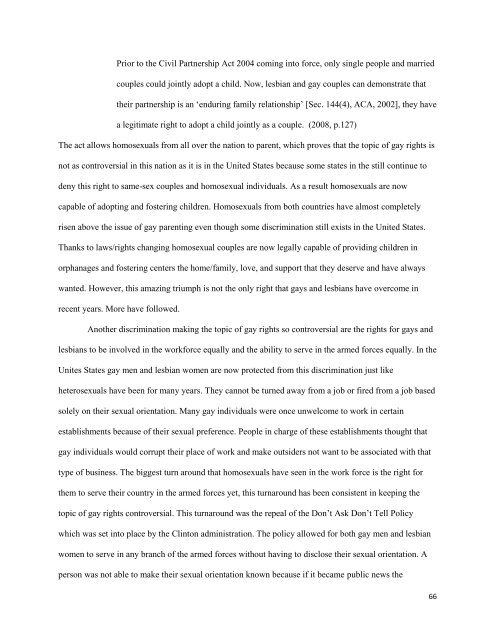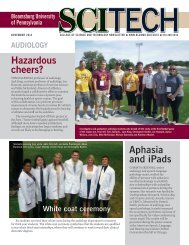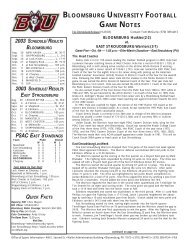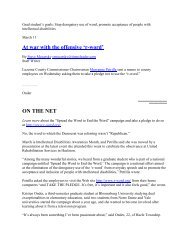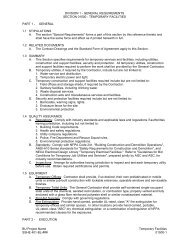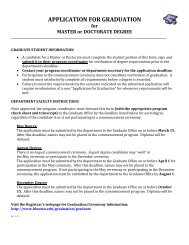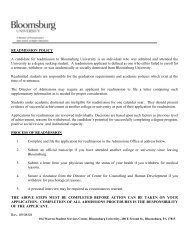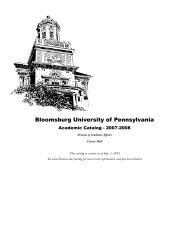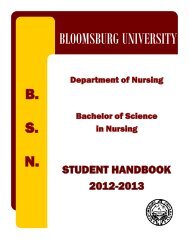Human Rights at Home and Abroad: Past, Present, and Future
Human Rights at Home and Abroad: Past, Present, and Future
Human Rights at Home and Abroad: Past, Present, and Future
You also want an ePaper? Increase the reach of your titles
YUMPU automatically turns print PDFs into web optimized ePapers that Google loves.
Prior to the Civil Partnership Act 2004 coming into force, only single people <strong>and</strong> married<br />
couples could jointly adopt a child. Now, lesbian <strong>and</strong> gay couples can demonstr<strong>at</strong>e th<strong>at</strong><br />
their partnership is an ‗enduring family rel<strong>at</strong>ionship‘ [Sec. 144(4), ACA, 2002], they have<br />
a legitim<strong>at</strong>e right to adopt a child jointly as a couple. (2008, p.127)<br />
The act allows homosexuals from all over the n<strong>at</strong>ion to parent, which proves th<strong>at</strong> the topic of gay rights is<br />
not as controversial in this n<strong>at</strong>ion as it is in the United St<strong>at</strong>es because some st<strong>at</strong>es in the still continue to<br />
deny this right to same-sex couples <strong>and</strong> homosexual individuals. As a result homosexuals are now<br />
capable of adopting <strong>and</strong> fostering children. Homosexuals from both countries have almost completely<br />
risen above the issue of gay parenting even though some discrimin<strong>at</strong>ion still exists in the United St<strong>at</strong>es.<br />
Thanks to laws/rights changing homosexual couples are now legally capable of providing children in<br />
orphanages <strong>and</strong> fostering centers the home/family, love, <strong>and</strong> support th<strong>at</strong> they deserve <strong>and</strong> have always<br />
wanted. However, this amazing triumph is not the only right th<strong>at</strong> gays <strong>and</strong> lesbians have overcome in<br />
recent years. More have followed.<br />
Another discrimin<strong>at</strong>ion making the topic of gay rights so controversial are the rights for gays <strong>and</strong><br />
lesbians to be involved in the workforce equally <strong>and</strong> the ability to serve in the armed forces equally. In the<br />
Unites St<strong>at</strong>es gay men <strong>and</strong> lesbian women are now protected from this discrimin<strong>at</strong>ion just like<br />
heterosexuals have been for many years. They cannot be turned away from a job or fired from a job based<br />
solely on their sexual orient<strong>at</strong>ion. Many gay individuals were once unwelcome to work in certain<br />
establishments because of their sexual preference. People in charge of these establishments thought th<strong>at</strong><br />
gay individuals would corrupt their place of work <strong>and</strong> make outsiders not want to be associ<strong>at</strong>ed with th<strong>at</strong><br />
type of business. The biggest turn around th<strong>at</strong> homosexuals have seen in the work force is the right for<br />
them to serve their country in the armed forces yet, this turnaround has been consistent in keeping the<br />
topic of gay rights controversial. This turnaround was the repeal of the Don‘t Ask Don‘t Tell Policy<br />
which was set into place by the Clinton administr<strong>at</strong>ion. The policy allowed for both gay men <strong>and</strong> lesbian<br />
women to serve in any branch of the armed forces without having to disclose their sexual orient<strong>at</strong>ion. A<br />
person was not able to make their sexual orient<strong>at</strong>ion known because if it became public news the<br />
66


